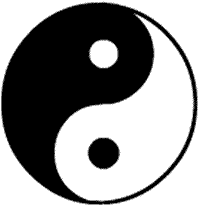on The Tertiary
As the pendulum swings once again, and the possibility of a Democrat-controlled Congress draws near, we should take a look at what we hope to accomplish as a people, and where we have failed. Today we will look at the failures, and after the results are in we can address what we will accomplish next.
The failure on which we can all agree is that of partisanship. One fourth of Americans identify with the conservative Republican platform, a slightly less number identify with the liberal Democratic platform, and the great majority of Americans identify either with the middle or with one of the many “third parties.” The greatest insult to the conservatives seems to be that liberals are constantly threatening our way of life and sense of decency with government mandates disguised as civil liberties. The greatest insult to the liberals is that the conservatives are redesigning the entire country to create a utopia for their own minority, at the expense of the masses.
The greatest insult of all, despite the harms of both issues mentioned above, comes from that third group. Rather, not a particular tertiary but the total of every other perspective, combined. The tertiary’s greatest insult is this: to Republicans and Democrats alike, there are only two ways of thinking. Our system is designed to have a majority party in power, and a minority party to keep them in check. There is no room for individual opinions or planks, as they are swiftly struck down one of the two ruling parties.
For two hundred thirty years, the two leading parties have shifted and altered, from the era of Whigs to the conservative-minded Southern Democrats to the split between the Reagan Republicans and the Neo-cons. It’s hard for us to believe today that the religion which boasts the most presidents is the agnostic Unitarian church, or that the Republicans were the human rights-based party for change during the civil war. We learn and believe that there are two beliefs: preserve the ways of the old, or usher the era of the new. There are no divisions.
Whichever party that is in power will fight to preserve tradition, claiming that tradition to be theirs. Whichever party is the minority will fight to usher in a new era of change. Meanwhile, the vast majority of Americans will just have to hope that their relatively narrow set of beliefs are protected by one of these two powers who are fighting like Herculean giants over our heads as we run for cover, for fear that we will be struck by the debris.




